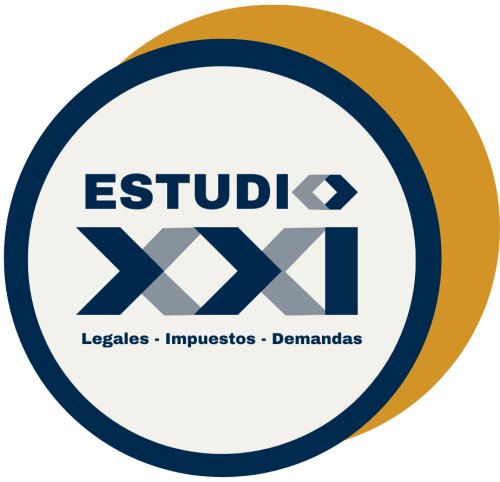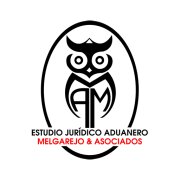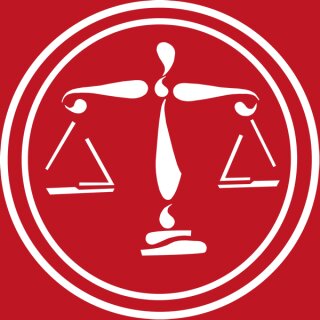Best Collaborative Law Lawyers in Asunción
Share your needs with us, get contacted by law firms.
Free. Takes 2 min.
Free Guide to Hiring a Family Lawyer
List of the best lawyers in Asunción, Paraguay
About Collaborative Law in Asunción, Paraguay
Collaborative law in Asunción, Paraguay, is an alternative dispute resolution method that enables parties to resolve disputes amicably without going to court. This process involves a series of meetings where both parties work together, often with the aid of collaboratively trained lawyers, to reach mutually satisfactory agreements. It is most commonly applied in family law cases, such as divorce or custody disputes, but it can also be used in other civil matters. The primary goal is to foster cooperation and reduce conflict, saving time and resources for everyone involved.
Why You May Need a Lawyer
Individuals may require legal help in collaborative law for various reasons. Common scenarios include:
- Divorce or Separation: Utilizing collaborative law to negotiate terms related to asset division, child custody, and support arrangements.
- Family Disputes: Resolving issues between family members in a non-adversarial setting.
- Business Disputes: Addressing disagreements among business partners or within small family-owned businesses.
- Inheritance Issues: Managing disputes over wills or inheritance without lengthy court battles.
Engaging a lawyer skilled in collaborative law can help ensure that agreements are comprehensive, fair, and legally sound.
Local Laws Overview
In Paraguay, collaborative law is governed by statutes within the civil code that emphasize peaceful resolution of disputes. The legal framework supports negotiation and mediation, recognizing agreements achieved outside of court as legally binding, provided they are notarized. Lawyers practicing collaborative law must abide by ethical guidelines that prioritize open communication, transparency, and fairness. Understanding these local legal principles is essential to effectively engage in the collaborative process.
Frequently Asked Questions
What is collaborative law?
Collaborative law is a process designed to help parties resolve disputes without going to court, focusing on communication and cooperation between both sides.
How does collaborative law differ from traditional litigation?
Unlike traditional litigation, which is adversarial by nature, collaborative law seeks to foster cooperation and reach amicable solutions, thereby reducing conflict and legal expenses.
What types of disputes can collaborative law address?
Collaborative law can address a variety of disputes, including marital separations, family issues, business disagreements, and inheritance disputes.
Do both parties need a collaborative lawyer?
Yes, it is essential that both parties have their own collaborative lawyers to ensure their interests are represented and to facilitate negotiations.
What happens if the collaborative process fails?
If the collaborative process is unsuccessful, parties may choose to proceed to court. However, the lawyers involved in the collaborative process cannot represent them in litigation.
Is the outcome of collaborative law legally binding?
Yes, any settlement reached through collaboration is documented and can be made legally binding, often through official notarization.
How long does the collaborative law process take?
The time frame for collaborative law varies depending on the complexity of the case and the willingness of parties to cooperate. It typically takes less time than going through the court system.
What are the costs associated with collaborative law?
Costs vary based on the specifics of the case and the rates of the involved lawyers. Generally, collaborative law is more cost-effective than litigation due to its nature.
Can collaborative law be used in high-conflict situations?
While collaborative law is designed to reduce conflict, it may not be suitable for situations where there is a significant power imbalance or history of abuse.
What qualifications should a collaborative lawyer have?
A collaborative lawyer should have specialized training in collaborative practices, a commitment to non-adversarial resolutions, and experience in handling similar cases.
Additional Resources
For more information or assistance with collaborative law in Asunción, consider consulting the following resources:
- The Paraguayan Bar Association - for a list of qualified collaborative lawyers.
- Family Law Chapter of Asunción - offers resources and workshops on non-adversarial dispute resolution.
- Paraguay's Ministry of Justice - provides information on legal processes and rights.
Next Steps
If you believe collaborative law may be the right path for your legal issues, consider the following steps:
- Research: Gather information on collaborative law and its processes to ensure it aligns with your needs.
- Consult: Reach out to a lawyer who specializes in collaborative law to discuss your case and potential approaches.
- Engage: If both parties agree, jointly retain collaboratively trained lawyers to guide you through the negotiation process.
- Proceed: Attend collaborative meetings with your lawyer to negotiate and document agreements.
By following these steps, you can navigate legal disputes efficiently and amicably, preserving relationships and reaching sustainable solutions.
Lawzana helps you find the best lawyers and law firms in Asunción through a curated and pre-screened list of qualified legal professionals. Our platform offers rankings and detailed profiles of attorneys and law firms, allowing you to compare based on practice areas, including Collaborative Law, experience, and client feedback.
Each profile includes a description of the firm's areas of practice, client reviews, team members and partners, year of establishment, spoken languages, office locations, contact information, social media presence, and any published articles or resources. Most firms on our platform speak English and are experienced in both local and international legal matters.
Get a quote from top-rated law firms in Asunción, Paraguay — quickly, securely, and without unnecessary hassle.
Disclaimer:
The information provided on this page is for general informational purposes only and does not constitute legal advice. While we strive to ensure the accuracy and relevance of the content, legal information may change over time, and interpretations of the law can vary. You should always consult with a qualified legal professional for advice specific to your situation.
We disclaim all liability for actions taken or not taken based on the content of this page. If you believe any information is incorrect or outdated, please contact us, and we will review and update it where appropriate.












